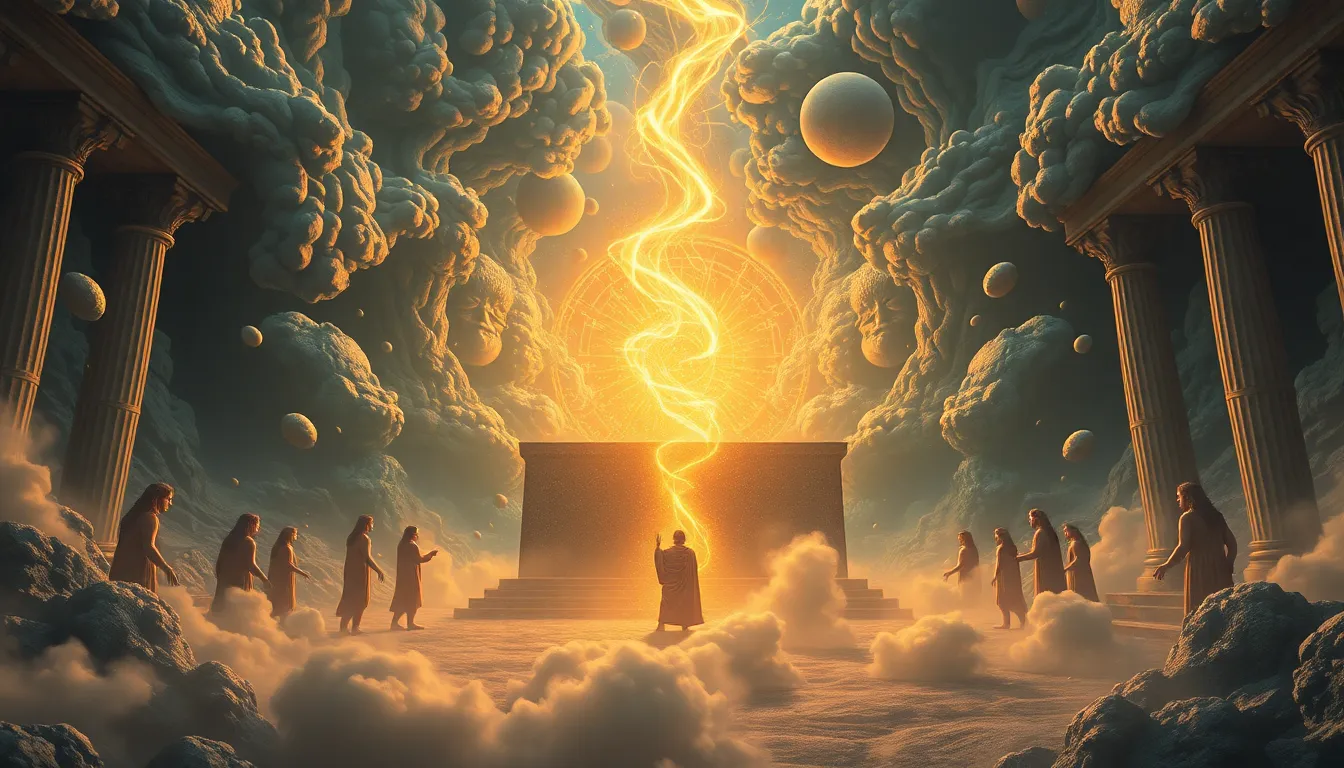Pandora’s Box: A Mythological Exploration of Human Nature
I. Introduction
Pandora’s Box is one of the most enduring myths from Greek mythology, serving as a rich tapestry for exploring the complexities of human nature. The myth revolves around Pandora, the first woman created by the gods, and the infamous box she opens, unleashing a torrent of miseries upon humanity. The significance of this myth lies not just in its narrative but in its profound implications for understanding human behavior, curiosity, and the duality of hope and despair.
The purpose of this article is to delve deep into the origins of Pandora’s Box, examine its contents, and explore the themes it embodies. Through this exploration, we aim to uncover the lessons this myth offers about human nature and its relevance in contemporary society.
II. The Origins of the Myth
The story of Pandora’s Box is rooted in ancient Greek culture, where myths served to explain the unexplainable and provide moral guidance. According to Hesiod, one of the earliest sources of Greek mythology, Pandora was created by the gods as a punishment for humanity following Prometheus’s theft of fire.
The role of the gods in this myth is pivotal. Zeus, the king of the gods, commands the creation of Pandora, imbuing her with gifts from each deity. She is described as beautiful yet deceitful, symbolizing the complex nature of temptation and the consequences of divine retribution. Key characters in this narrative include:
- Pandora: The first woman, whose curiosity leads to the release of calamities.
- Epimetheus: Pandora’s husband, who represents the folly of ignoring warnings and the consequences of naivety.
III. The Contents of the Box
Pandora’s Box, despite its name, is more accurately described as a jar (pithos) in the original Greek texts. It contains a multitude of elements, each representing different aspects of human existence:
- Suffering: Pain, disease, and misfortune.
- Fear: Anxiety and dread that plague humanity.
- Despair: The feeling of hopelessness that can overwhelm individuals.
- Hope: The last element to remain in the jar after Pandora closes it.
The symbolism of these contents is profound. They reflect the inherent struggles of human life and the inevitability of suffering. The act of releasing these elements into the world suggests that pain and hardship are integral to the human experience.
IV. Themes of Curiosity and Consequence
At the heart of Pandora’s story is her insatiable curiosity. Despite being warned not to open the box, her desire to know drives her to act against the advice of the gods. This theme resonates deeply in both mythology and our daily lives, as curiosity often leads to discovery but can also result in unintended consequences.
The consequences of human curiosity are not limited to ancient myths; they manifest in modern society as well. From scientific exploration to technological advancement, the quest for knowledge is a double-edged sword. The duality of knowledge and ignorance is a recurring motif in human history, raising questions about the limits of understanding and the price of enlightenment.
V. The Role of Hope
Amidst the chaos unleashed by Pandora’s actions, hope remains in the box as a beacon of light. This analysis of hope is critical, as it serves as a counterbalance to despair. The paradox of hope, surviving even in the darkest of times, reflects the resilience of the human spirit.
Hope can influence human behavior in significant ways, encouraging individuals to persevere through hardships. It shapes our outlook on life and motivates us to strive for a better future, even in the face of adversity. This enduring element in the myth highlights the importance of hope as a fundamental aspect of human nature.
VI. Lessons from the Myth
Pandora’s actions impart crucial moral lessons about temptation, responsibility, and accountability. The myth serves as a cautionary tale about the dangers of unchecked curiosity and the repercussions that follow. It prompts reflection on human nature, urging individuals to consider the potential consequences of their actions.
Moreover, the story reflects societal values and fears. In ancient Greece, the myth illustrated the belief in divine punishment for human transgressions, emphasizing the need for humility and caution in the face of temptation. The lessons from Pandora’s Box remain relevant today, reminding us of the delicate balance between knowledge and ignorance.
VII. Modern Interpretations and Relevance
The influence of Pandora’s Box extends beyond ancient mythology into contemporary literature and culture. The story serves as a metaphor for various modern dilemmas, from the ethical implications of scientific advancements to the psychological struggles individuals face in their lives.
Psychological interpretations of the myth often focus on the duality of human nature—the internal battle between hope and despair. It resonates with the struggles of modern individuals dealing with mental health issues, societal pressures, and existential crises.
In today’s world, where technology and information are at our fingertips, the relevance of Pandora’s Box can be seen in discussions about ethics and the potential consequences of our actions. The myth serves as a reminder to approach knowledge with caution and responsibility, as the line between curiosity and recklessness can easily blur.
VIII. Conclusion
In conclusion, the exploration of Pandora’s Box reveals deep insights into human nature, curiosity, and the complexities of hope and despair. The myth serves as a timeless reflection on the consequences of our actions and the moral dilemmas we face.
The enduring significance of Pandora’s Box invites us to reflect on our own lives, encouraging a balance between curiosity and consequence. As we navigate the challenges of existence, let us remember the lessons of the past and strive to cultivate hope amidst the trials we encounter.
We invite readers to further reflect on the implications of this myth in their own lives and consider the delicate balance between the pursuit of knowledge and the responsibilities that accompany it.




